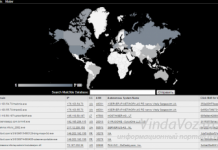The traditional image of the Antichrist – a singular, malevolent figure – may be outdated. A growing trend suggests that the force opposing human flourishing may not be a person, but a system: specifically, the accelerating development of advanced technology. This isn’t merely a theological debate; it’s a question of whether the very tools meant to solve humanity’s problems are instead creating a new form of destructive power.
The Technological Promise of Salvation
The core argument isn’t that Silicon Valley is intentionally building evil; rather, the relentless pursuit of technological “progress” is leading to unintended consequences. Billionaires and tech leaders openly discuss creating “superhuman intelligences” – systems capable of surpassing human rationality and solving global crises. This promise of salvation – a unified, rational future – echoes the original appeal of the Antichrist in religious narratives: a figure offering a swift, decisive solution to a crumbling world.
The appeal is strong. Technology is presented as a neutral force, capable of overcoming human flaws like passion, destruction, and division. The idea that machines can unite humanity under a single, logical framework is actively promoted. This narrative conveniently overlooks the power dynamics inherent in such systems: who controls the technology, and to what end?
Digital Heresy: Christianity Without Christ
The most unsettling aspect is the convergence of technological ambition with religious undertones. Some figures openly discuss “uploading” human consciousness into digital substrates – effectively seeking immortality within machines. This pursuit resembles a “digital heresy,” a distorted form of Christian eschatology. The traditional belief in divine salvation is replaced by the promise of technological transcendence.
Instead of seeking redemption through faith, the focus shifts to creating a “heaven” within silicon. The ultimate goal is not to serve God but to become gods – to construct beings that surpass human limitations and offer a new form of eternal life. This ambition, while framed as progress, carries the same hubris as the original Antichrist myth: the belief that humanity can create its own salvation without divine intervention.
The System as Antagonist
The danger isn’t necessarily the conscious malice of individuals but the inherent logic of the technological system itself. As technology advances, it increasingly prioritizes efficiency, control, and optimization. These values, while seemingly neutral, can easily erode human agency, destroy natural ecosystems, and exacerbate social inequalities.
The system doesn’t require a single, identifiable Antichrist figure. Instead, it operates as a self-reinforcing cycle of innovation and control, gradually reshaping the world in its own image. The promise of salvation becomes a trap, as humanity surrenders its autonomy in exchange for the illusion of security and progress.
The true Antichrist may not be a person or even a conscious entity. It may simply be the relentless, unthinking momentum of technology itself, promising salvation while delivering a new form of enslavement





























![Як налаштувати всі кнопки миші-покрокова інструкція в картинках [розбір від геймера]](https://softik.net.ua/wp-content/uploads/2022/01/1-15-100x70.jpg)













































